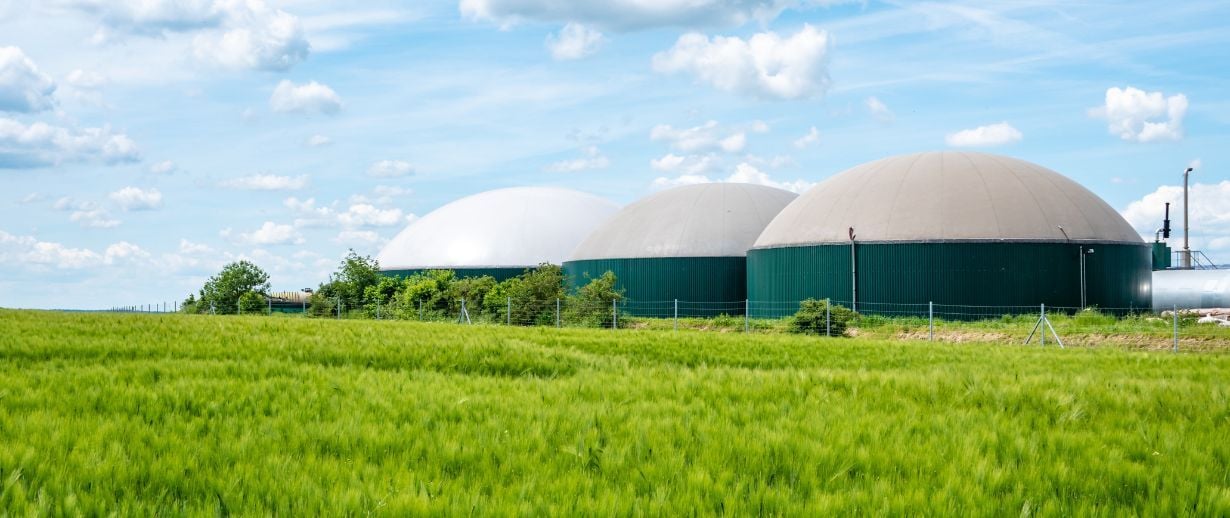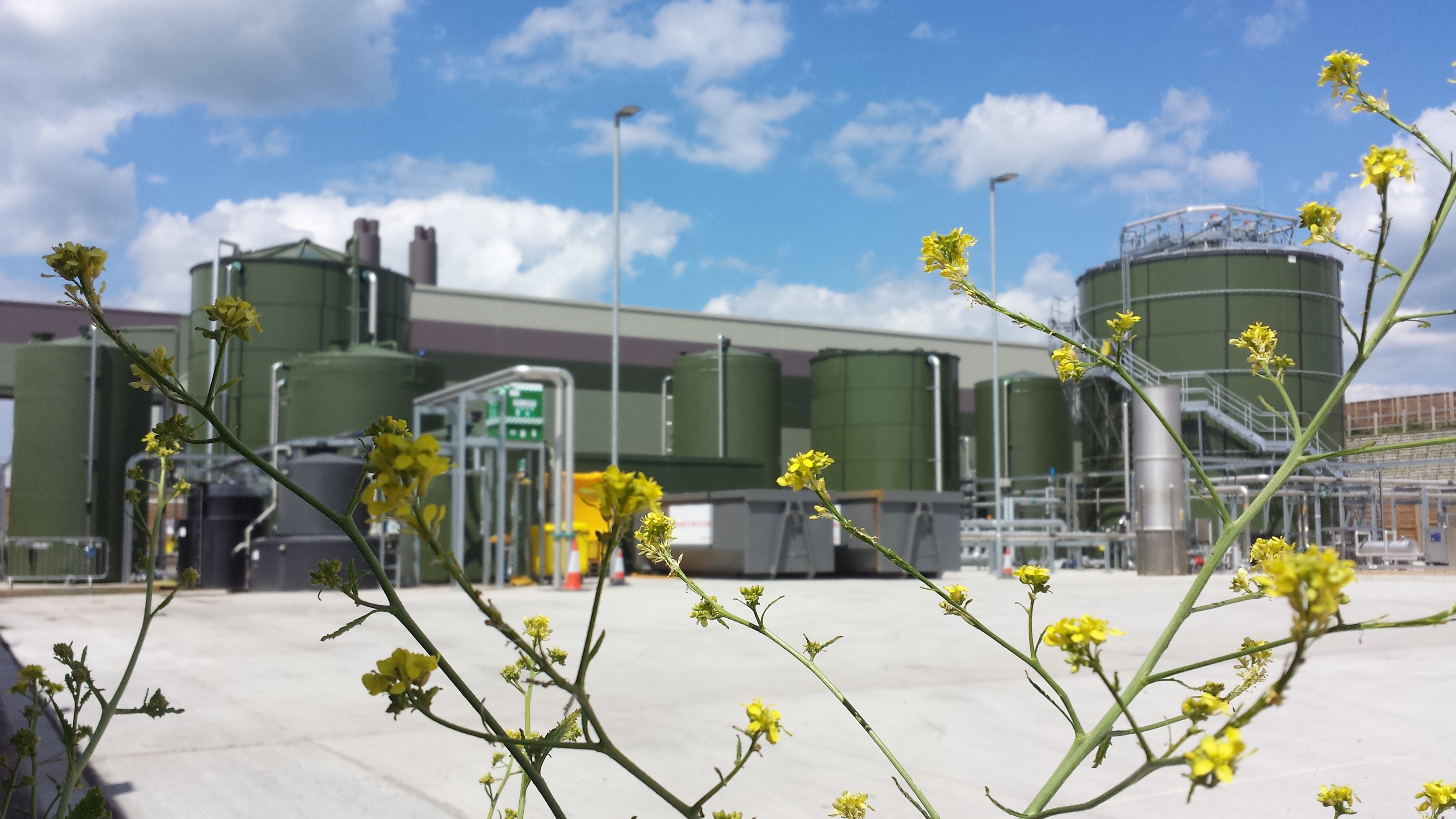Anaerobic digestion (AD) is a wastewater treatment method that converts organic waste into renewable energy and valuable resources. This sustainable technology offers a dual solution: effectively treating wastewater while generating biogas and nutrient-rich biofertiliser. In this blog, we will explore how AD technology works, examine its key benefits, share real-world applications, and demonstrate why it's becoming the cornerstone of sustainable wastewater treatment.
What are the key benefits of anaerobic digestion technology?

Anaerobic digestion (AD) is the natural breakdown of organic matter, producing biogas, also known as biomethane and biofertiliser (called digestate) in a treatment unit called a digester. The key benefit of the technology is that it treats organic wastes such as food waste, sewage, manure, slurries - that would otherwise emit harmful gases in landfill or during incineration. It also produces biofertiliser as well as biogas, a green energy source that can be used for electricity generation, heat and transport fuel.
AD can reduce the carbon footprint of hard-to-decarbonise sectors such as heat, transport, waste management and agriculture. It is a mature, readily available technology which creates a sustainable circular economy.
The importance of reusing wastewater for energy generation
Reusing wastewater follows the principles of the circular economy and helps reduce greenhouse gas emissions. With processes such as AD, it is possible to generate the energy required for treatment with surplus biogas sold to the gas grid. The surplus biogas output can be sold towards either heat or electricity generation. This helps to:
- Achieve carbon neutrality for the wastewater treatment process
- Support the water industry’s bid to achieve net-zero emissions in their operations by 2030
- Support the UK's overall Net Zero by 2050 target
There are currently 163 wastewater plants operating in the UK, processing mostly sewage sludge. The wastewater sector is generating around 2.7 TWh of biogas per year – a large proportion of which can power the wastewater industry itself. If all of the UK’s wastewater were treated through AD, the industry could generate a total of 5.8 TWh per year. That’s the equivalent of providing electricity and heat for around 500,000 homes.
Case Study - Arla Foods

At Arla's facility in Aylesbury, we implemented an innovative Memthane® wastewater treatment solution, showcasing AD technology's potential in the food and beverage industry. The facility, processing one billion litres of milk annually, aimed to become the world's first zero-carbon fresh milk processing facility.
The Memthane® system, an Anaerobic Membrane Bio-Reactor (AnMBR), treats over 800m³ of wastewater daily, achieving remarkable results:
- 99.4% average TCOD removal
- Generation of biogas for onsite CHP plant
- Exceptional quality effluent production
- Zero waste to landfill contribution
Read the full story here
What are the challenges facing the wastewater and AD industry?
Ensuring it stands up to ever-increasing environmental scrutiny, and as a leader in the action to mitigate climate change. The AD industry’s greatest challenge is ensuring it can reach its full potential and maximise deployment across the country and the globe.
In addition, an issue that cuts across the two sectors is the co-digestion of sewage sludge and food waste, with current regulations imposing a significant monetary burden that heavily disincentivises the efficient allocation of feedstocks to plants.
The need to embrace anaerobic technology
AD doesn't just generate green gas, but also treats waste - a process that captures harmful greenhouse gases and produces biofertilisers. With diverse feedstocks such as sewage, food waste, manures, slurries and crop residues, building the industry requires the involvement of multiple government departments, as well as multiple regulators.
As biomethane emerges as a ready-to-use renewable fuel to cut emissions in some of the hardest-to-decarbonise sectors, the rationale to support the sector is strong.
To advance the technology's adoption, several key initiatives are needed: continued support for renewable heat; long-term commitment to renewable transport fuel obligations; targeted innovation funding; establishment of organic waste hierarchies with AD as the optimal recycling technology; development of renewable biofertiliser standards; and support for local circular economy projects that use AD to transform waste into local heat and power.
It is also clear that the general population is not yet fully aware of the huge potential AD represents for their country, as well as their local communities. Education and public awareness about the wide-reaching benefits of AD will help overcome the current barriers by empowering people to support sustainable solutions for energy, transport, agriculture and waste systems that meet our climate goals.
Driving Innovation in Anaerobic Digestion Technology
The AD industry thrives on continuous technological innovation and collaboration. Industry leaders actively engage with innovative projects that seek to improve all aspects of AD technology and overcome barriers to wider adoption. Through partnerships between academic institutions, industry professionals, and technology providers, new solutions are constantly being developed to advance the sector.
Stakeholder engagement through site visits, industry events, and research collaborations helps build a comprehensive understanding of the sector's needs and opportunities. Working closely with government funding initiatives and universities, the industry continues to drive innovation and secure support for projects that enhance AD technology and its applications.
The future of anaerobic digestion technology looks increasingly promising, with several emerging trends:
- Integration with smart monitoring systems and AI for optimal performance
- Enhanced membrane technologies for improved efficiency
- Development of more compact, urban-friendly AD systems
- Integration with other renewable energy systems
- Advanced biogas upgrading technologies
- Innovation in digestate processing and utilisation
How will anaerobic digestion help the UK reach its goal of net zero by 2050?
AD is already reducing the UK's greenhouse gas emissions by 1% annually. With a fully deployed infrastructure and optimised collection of the organic wastes made available for AD treatment, the industry could cut emissions by 6% as early as 2030, delivering 30% of the country’s legally binding carbon budget for 2030.
For further information on our wastewater recovery technologies and services, click here.